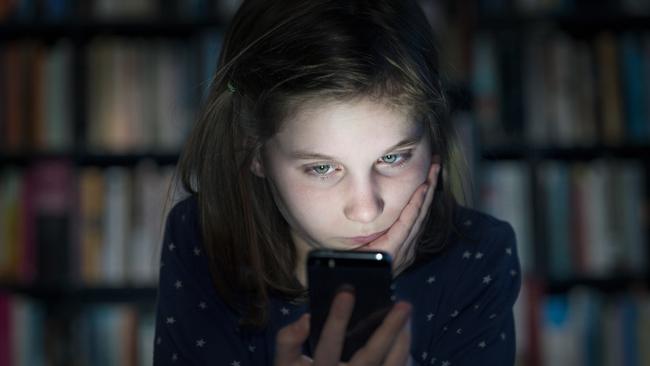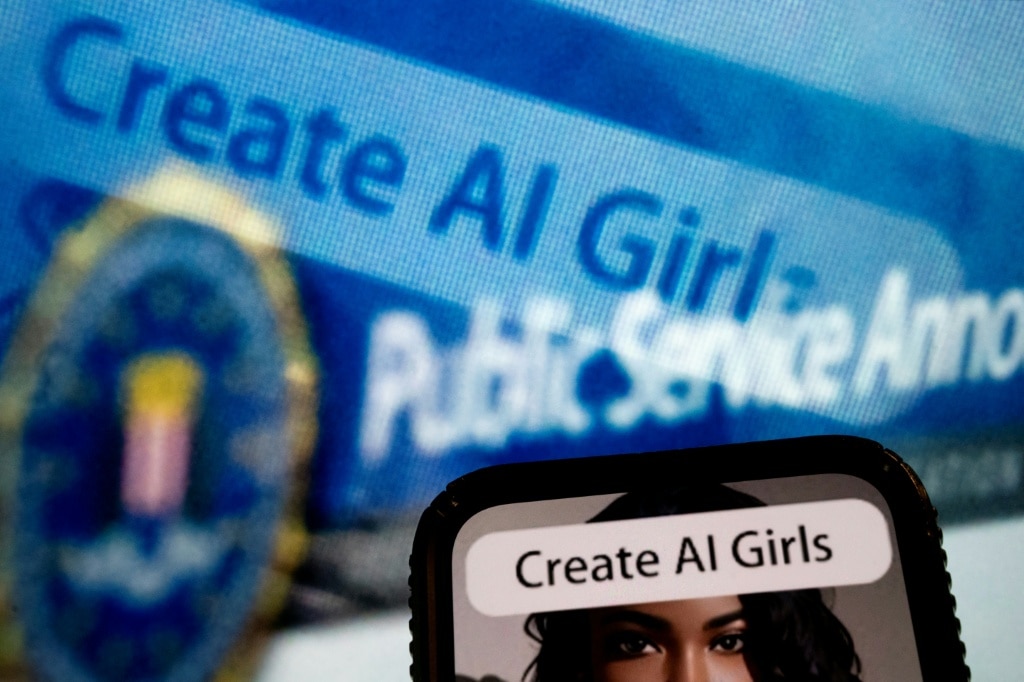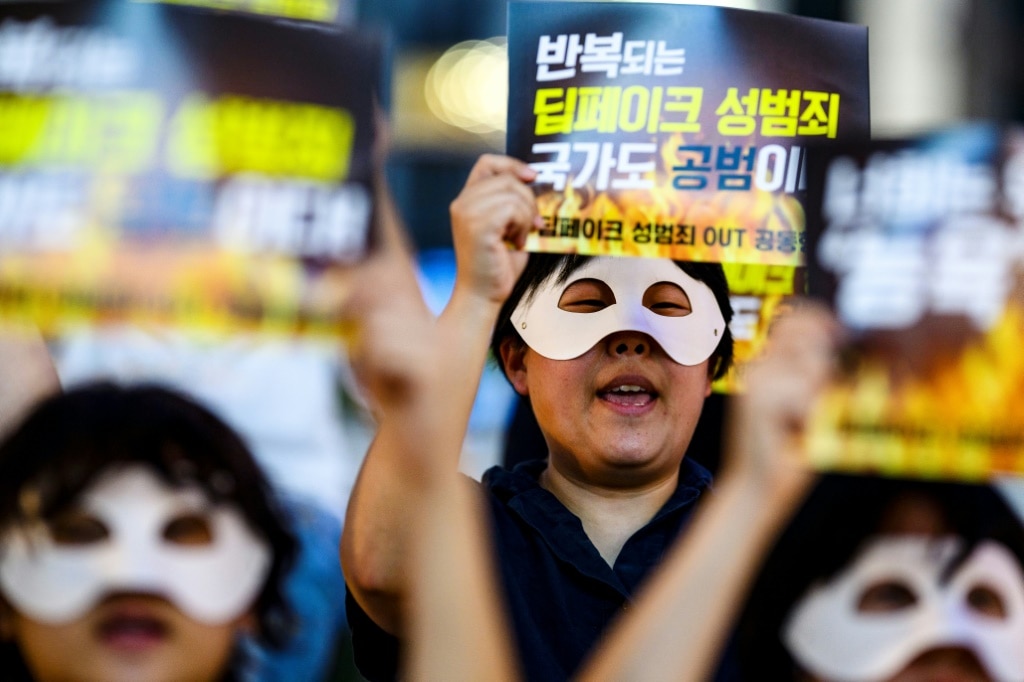Teenagers selling nude deepfakes made from class photos: new frontier of bullying and abuse
Female teachers, on the frontline of schoolboys’ sexual harassment, are fleeing the profession while ‘terrorised’ girls are shunning school because of hi-tech bullying and abuse.

Teenagers are selling and swapping deepfake sexual images of female classmates and teachers, and even using class photos to build their own “DIY porn hubs’’, in a hi-tech new frontier of bullying and abuse.
Female teachers, on the frontline of schoolboys’ sexual harassment, are fleeing the profession while “terrorised’’ girls are shunning school, in a growing trend of “school refusal’’ with lifelong repercussions.
Collective Shout co-founder Melinda Tankard Reist, who in partnership with educator Maggie Dent last year surveyed 1000 Australian female teachers about sexual harassment from students, said pornographic “deep fakes” are now being created from school photos.
“AI-enabled nudifying and undressing apps are being weaponised against women and girls,’’ she told The Australian.
“So many girls I speak to are living in a state of terror that this is going to happen to them – it’s as easy as for $2 you can download a program that will enable you to undress and nudify any woman and girl.
“Easily available tools are acting as an accelerant for violence against women because they normalise non-consensual sexual activity and are turning boys into self-appointed porn producers.’’
Some students have embraced artificial intelligence to amplify the misogynistic abuse that once happened only in schoolyards.
Act for Kids, a charity providing therapeutic intervention for children who sexually abuse other children, has highlighted the case of a 12-year-old boy who revealed classmates were using an app to “rate’’ girls at school.
“They have all the girls in their classroom listed on this app, which then suggests who to marry, who to f. k and who to kill,’’ Act for Kids director of therapy and specialist services Miranda Bain told The Australian.
“That’s an AI platform that these 12-year-old boys are engaging with.’’
Ms Bain is also assisting a 17-year-old girl who is tormented by school bullies, after a boy fed photos of her, fully clothed but drunk at a party, into an image generator to produce deepfake images of her in sexual positions.
“A whole bunch of images of her in sexual positions that she was not in at the party were then circulating at school,’’ Ms Bain said.
“But because of the context – there would have been other kids at the party – it looks like it happened.’’
Ms Tankard Reist said AI can transform innocent images posted on social media, or even official school photos, into pornography.
“It’s beyond just undressing, which is bad enough, but you can turn any woman or girl into a porn genre,’’ she said.
“You can tie her up, make her appear pregnant, turn her into a sexual slave.’’
Ms Tankard Reist said teenagers were selling images to students at other schools.
“It appears to have become an underground trade of buying and selling these images, which is particularly distressing for girls,’’ she said.
“The images are so realistic that sometimes it’s difficult for them to convince others that they didn’t make or send the pictures. And the law isn’t keeping up.“
Kirra Pendergast, who co-founded Ctrl+Shft, which delivers education and crisis responses to schools, agreed “laws cannot keep up with the pace of technology’’ and the “regulator can’t get ahead of it”.
“Those boys involved are too young to be prosecuted and we have a whole cohort of girls who have ongoing trauma,’’ she said.
Ms Pendergast, who is often a conduit between schools, parents and police, said she has been contacted by eight Australian schools in the past week because students as young as 10 have created deepfake images of other students or teachers.
At one school, she said, teenagers had created on a device what could be called their own private “DIY porn hub” of their long-term female friends.
The private collection was discovered by accident, when one of the girls found an unlocked phone with hundreds of photos taken in social situations, which had been turned into deepfake nudes.
The images were deleted as soon as one of the offenders was confronted, but a male student was expelled from the school.
“There was no legal recourse because everything was deleted,” Ms Pendergast said.
“We’re (always) trying to ensure there is no self-harm from boys being ashamed … and that girls don’t self-harm because they’re so traumatised.“
“The schools are doing the best they possibly can … but they are not trained or supported highly enough.’’
Ms Pendergast said another schoolgirl was distraught after someone on a storytelling app used her real name and that of a male classmate in explicit, fictional content posted to an online forum.
It included fictional but explicit detail on how she wanted to have sex with a boy in the year group.
“That girl was so embarrassed … she’s refusing to go to school,” Ms Pendergast said.
In evidence to the NSW parliamentary inquiry in March, Ms Tankard Reist said teachers reported that students’ group chats for homework could quickly descend into the covert sharing of “deviant and violent pornography’’.
She said schools were becoming “sites of abuse’’.
“From my own experience addressing thousands of students every year, the stories are getting worse, and they’re getting worse younger,’’ she said.
“There is more sexualised, racist abuse of girls … and more rape threats.
“There is not one school that I go into and work with where the girls do not report being subjected to daily sexual intrusions – demands for nudes, sent dick pics, threatened with rape if they don’t send nudes, subjected to moaning and groaning noises in the classroom, at the school camp, on the school bus.
“I talk to eight- and nine-year-old girls who say, ‘I do not feel safe at school’, because the sexual harassment has become so rife.’’
The Albanese government has commissioned a review of bullying in schools, led by clinical psychologist Dr Charlotte Keating, clinical adviser at the Alannah and Madeline Foundation, and Dr Jo Robinson, who leads Orygen’s suicide prevention research.
The government is also spending $77.6m for schools to deliver respectful relationships education.
A spokesperson for Attorney-General Michelle Rowland said the Albanese government had amended the Criminal Code last September to provide six-year jail terms for the non-consensual sharing of deepfake sexual material of an adult online – or seven years’ jail if the person sharing it also created the material.
Producing images of child abuse – real or artificially generated – carries a penalty of up to 15 years’ jail.
“This includes making child abuse material available for viewing, copying or downloading,” the spokesperson said.
Federal Education Minister Jason Clare said all students and staff should be safe at school, and free from bullying and violence.
He said the federal, state and territories had worked together last year to ban mobile phones in all schools.
“We’re taking action to develop a national standard to address bullying in schools,” Mr Clare said.
“Bullying and harassment don’t just happen in schools, but schools are places where we can intervene and provide support for students.’’







To join the conversation, please log in. Don't have an account? Register
Join the conversation, you are commenting as Logout